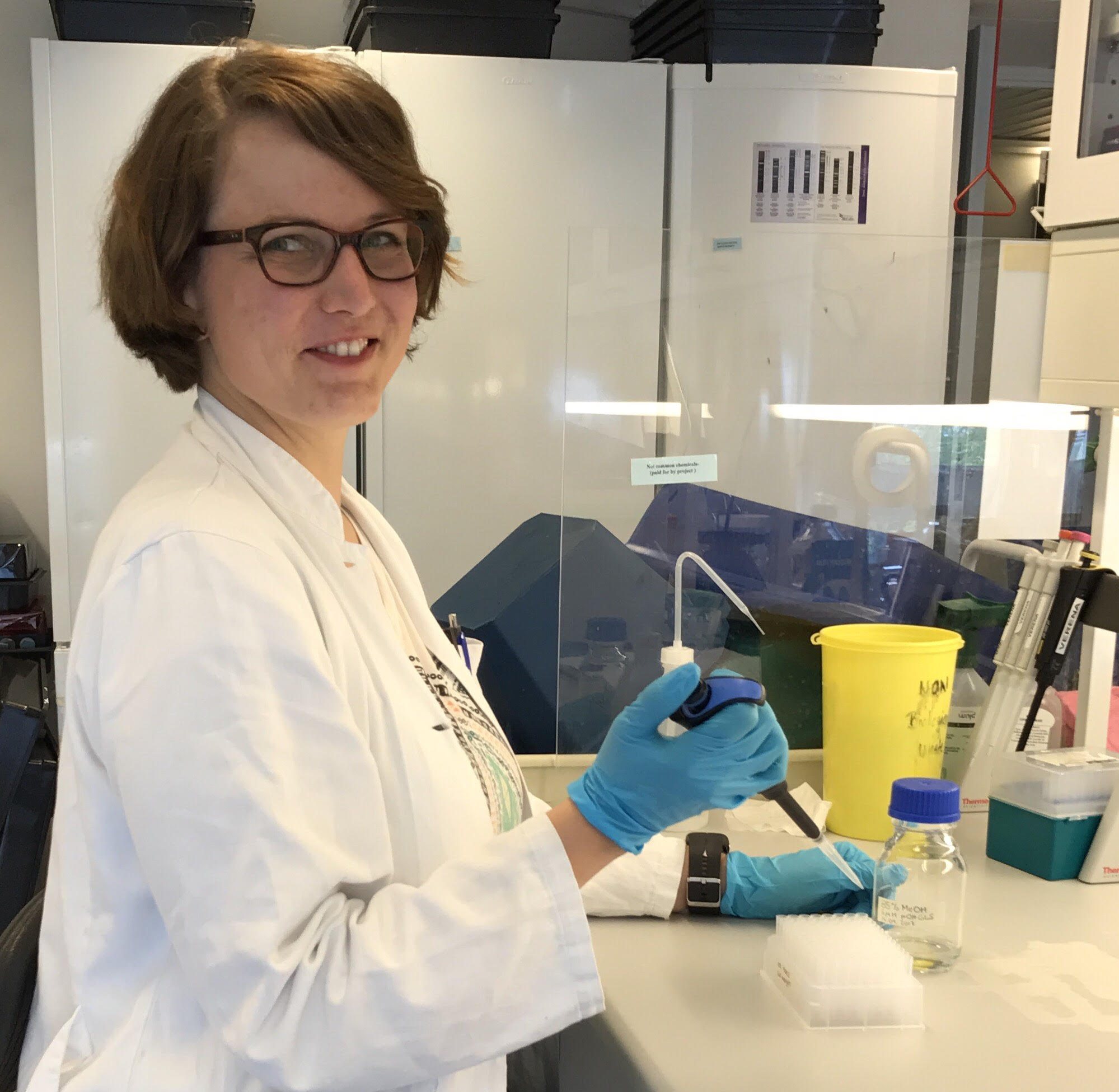Verena Jeschke - new postdoc with focus on metabolite sensing
Verena Jeschke commenced as a postdoc at DynaMo in April 2017. She will study the molecular mechanism involved in glucosinolate sensing and glucosinolate turnover in Arabidopsis thaliana

Verena Jeschke holds a B.Sc. in Chemistry from Free University Berlin, Germany, an M.Sc. in Chemical Biology from Friedrich Schiller University Jena, Germany, and a PhD from Max Planck Institute for Chemical Ecology, Jena, Germany - supported by a Max Planck Fellowship. Since April 2017, she is a postdoc in the Regulation subgroup at the DynaMo Center.
Genes involved in structure-specific sensing and signaling
At DynaMo, Verena's aim is to study the molecular mechanism involved in glucosinolate sensing and glucosinolate turnover in Arabidopsis thaliana. She will determine structure-specific turnover rates of intact glucosinolates in planta and elucidate myrosinase-independent glucosinolate turnover pathways. The chemical structures of the metabolites of the turnover pathway will be elucidated with MS and NMR techniques. Verena will use those metabolites to identify genes involved in structure-specific glucosinolate sensing and signaling. The aim is to identify glucosinolate-derived structures involved in regulation of the metabolism and the pathways of sensing glucosinolates in planta.
Verena explains:
"Previously I have studied the mode of action of glucosinolates and their breakdown products in herbivorous insects, now I am interested in investigating their role in regulation and communication within the plant. Currently, little is known about the function and mode of action of the diverse breakdown products and side-chain chemistries found in cruciferous plants. I hope to gain new insights on why this diversity exists and how those metabolites influence plant metabolism, growth and defense response."
